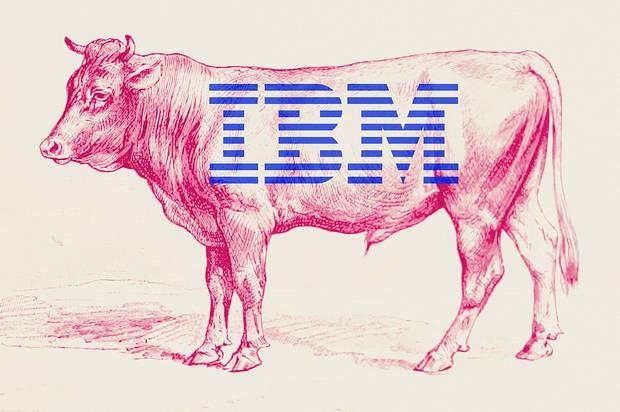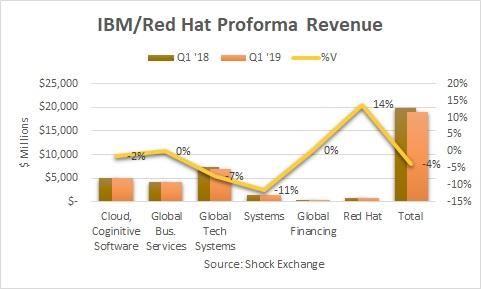Summary
- From a revenue perspective, the Red Hat deal is small potatoes for IBM.
- Red Hat could make IBM dominant in hybrid cloud computing.
- Red Hat could help IBM in other ways, which I explain below.
- The melt-up in financial markets has helped IBM. It likely will not last. I rate IBM a sell.
- Looking for a portfolio of ideas like this one? Members of Shocking The Street get exclusive access to our model portfolio. Get started today »
 Source: Barron's
Source: Barron's
I have been bearish on IBM (NYSE:IBM) for several years. As more information is being disseminated and stored over the Internet, cloud computing has become all the rage. The company has been transitioning from mainframe computing to cloud computing. That transformation has been a long, arduous process. The company has stagnant to declining revenue growth, making it difficult to recommend the stock. Its acquisition of Red Hat (RHT) for $34 billion was expensive, but it could pay dividends down the line.
The Revenue Impact Will Be Small Potatoes
The revenue impact from acquiring Red Hat will be negligible. IBM and Red Hat generate quarterly revenue of $18 billion and $900 million, respectively. Red Hat represents about 5% of IBM's total revenue, and it may not stop the slide in IBM's revenue growth. Last quarter, IBM's revenue fell 5% Y/Y.
 Revenue from Cloud and Cognitive Software fell 2% Y/Y, despite the fact that consulting revenue grew by high single-digits. Revenue growth from Global Business Services ("GBS") and Global Technology Services ("GTS") was flat and down 7%, respectively. GTS did show growth in hybrid cloud revenue, which could be something to build on for the future.
Revenue from Cloud and Cognitive Software fell 2% Y/Y, despite the fact that consulting revenue grew by high single-digits. Revenue growth from Global Business Services ("GBS") and Global Technology Services ("GTS") was flat and down 7%, respectively. GTS did show growth in hybrid cloud revenue, which could be something to build on for the future.
Assuming the IBM/Red Hat deal had already been in place, proforma revenue would have fallen by 4% Y/Y. For the quarter-ended February 2019, Red Hat generated revenue of $879 million, up 14% Y/Y. Red Hat provides open source software as an alternative to proprietary software. Open source software code is typically freely shared and requires no licensing fees. Red Hat makes money from licensing the code. Red Hat specializes in hybrid cloud:
Hybrid cloud is a cloud computing environment that uses a mix of on-premises, private cloud and third-party, public cloud services with orchestration between the two platforms. By allowing workloads to move between private and public clouds as computing needs and costs change, hybrid cloud gives businesses greater flexibility and more data deployment options.
Hybrid cloud computing could potentially be more cost effective to scale than private cloud. It could also potentially offer more data security than the public cloud. Hybrid cloud seems to marry the best of private and public cloud computing. Post-deal, IBM expects to be one of the top players in hybrid cloud computing, which is fast growing.















